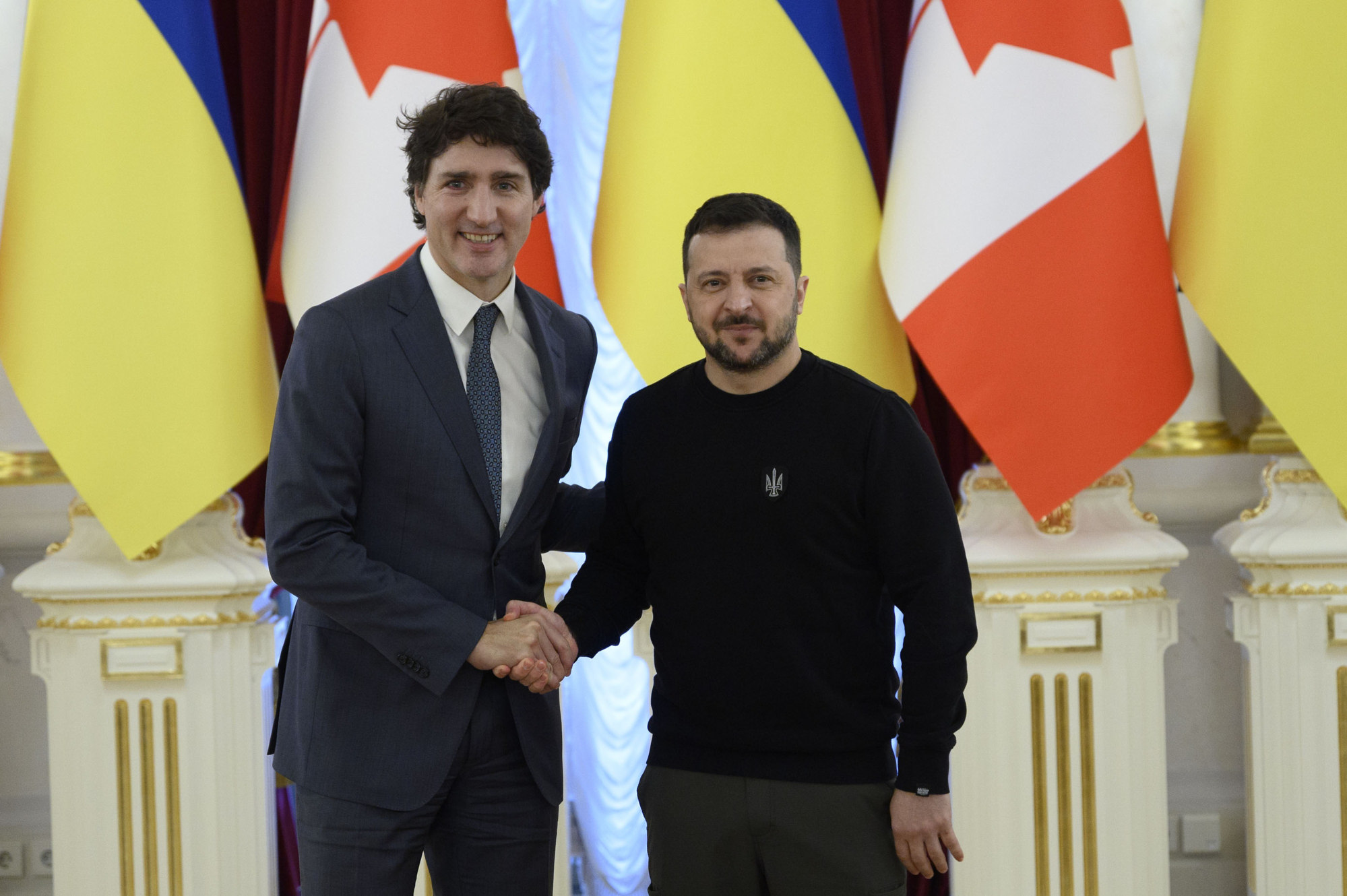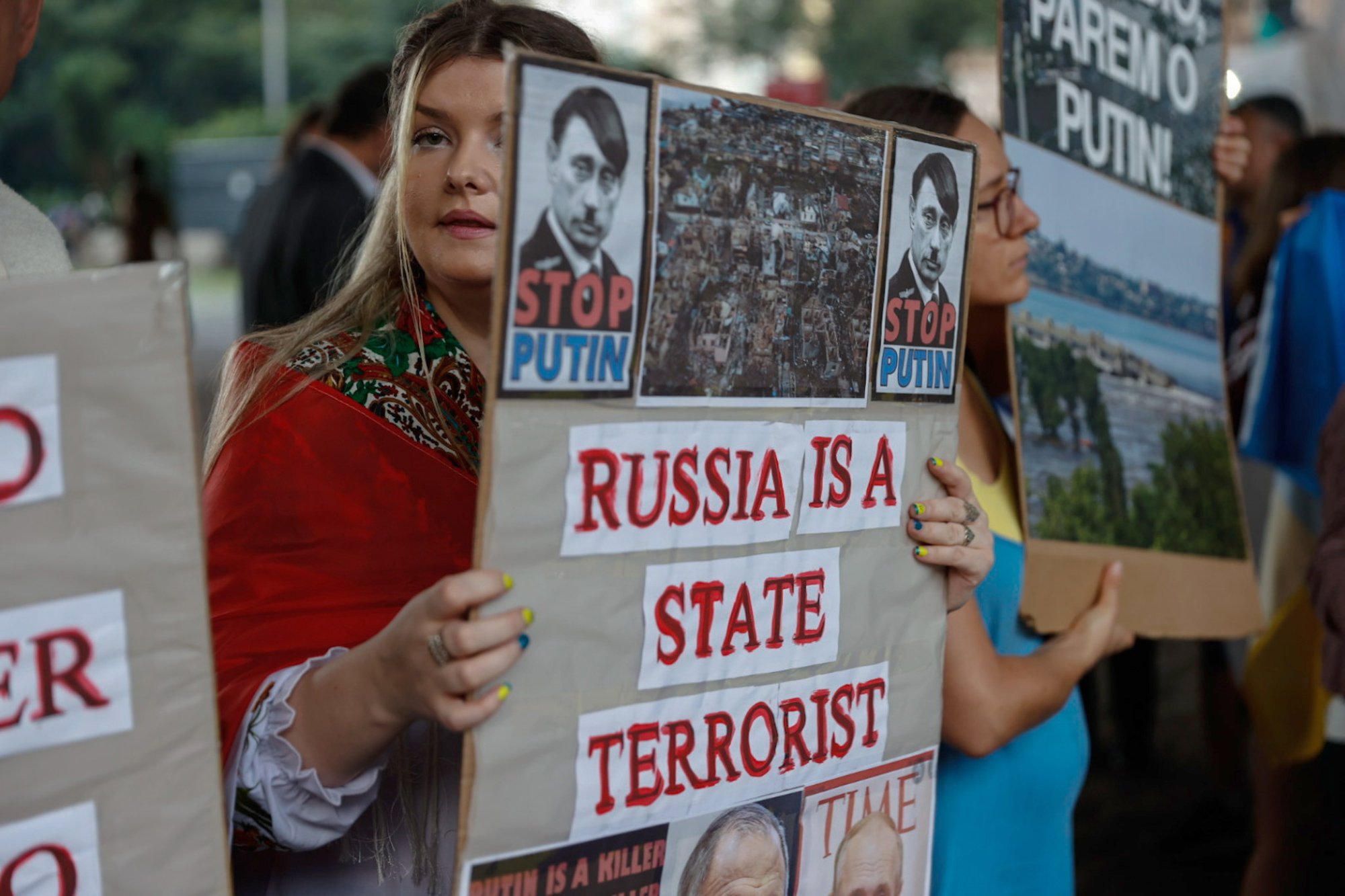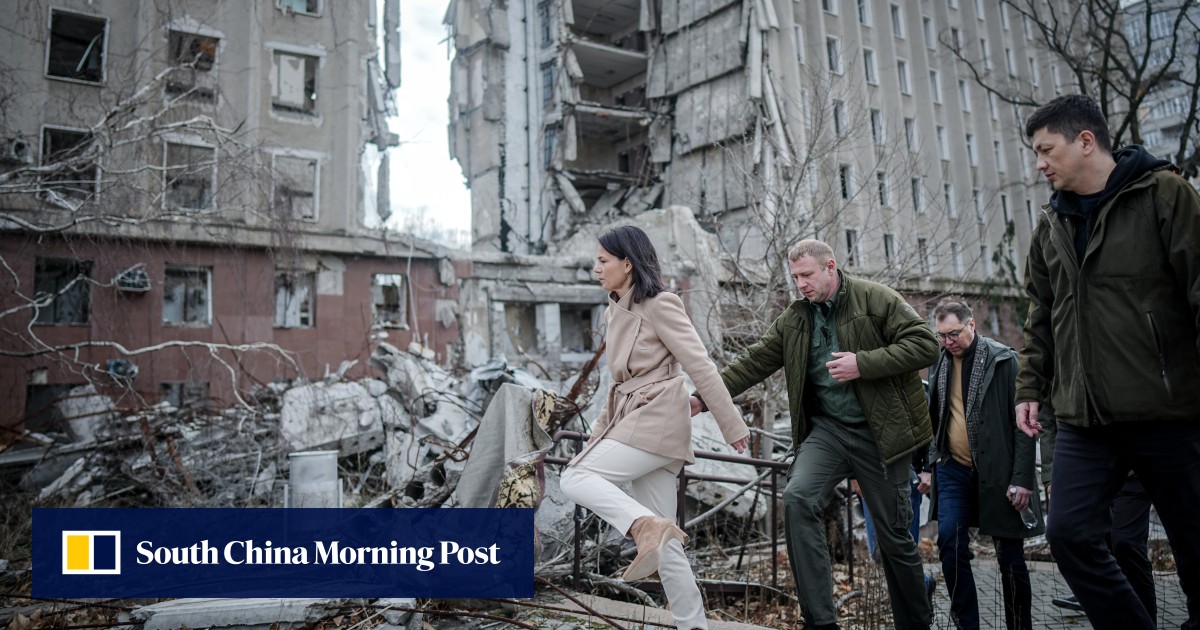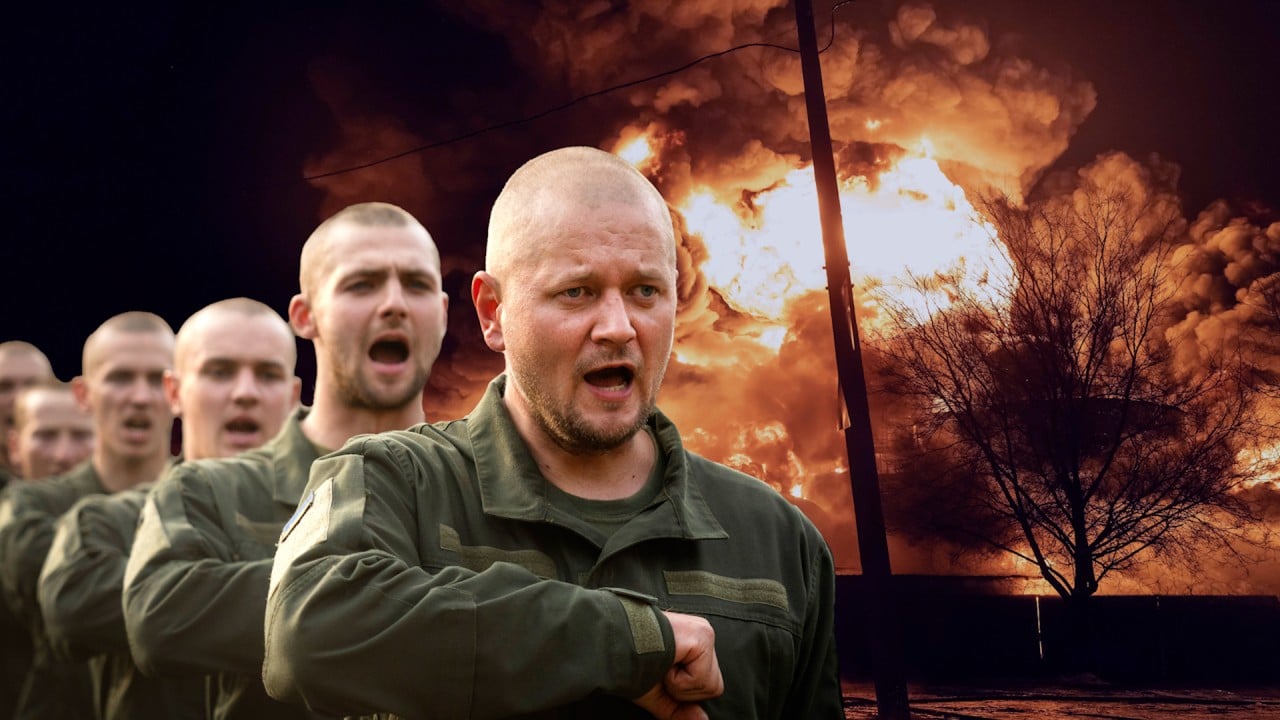“Fifty per cent of commitments are not delivered on time,” he added.
Europe has admitted it will fall far short of a plan to deliver more than one million artillery shells to the country by March, instead hoping to complete the shipments by the end of the year.
Umerov said such delays put Ukraine at a further disadvantage “in the mathematics of war” against Russia, which the West has said is increasingly building a war economy.
Umerov said that delayed aid will mean Kyiv will “lose people, lose territories”, especially given Russia’s “air superiority”.
“We do everything possible and impossible but without timely supply it harms us,” he said.
Kyiv has in recent weeks been weakened by an ammunition shortage, with a vital US$60-billion US aid package blocked by political wrangling in the US Congress.
US President Joe Biden said the hold-ups directly contributed to Ukraine being forced to withdraw from the frontline town of Avdiivka earlier in February, handing Russia its first territorial gain in almost a year.
Ukraine’s Prime Minister Denys Shmygal said on Sunday he was “deeply convinced that the US will not abandon Ukraine in terms of financial, military and armed support”.
President Volodymyr Zelensky pressed G7 leaders on Saturday to ensure the fast delivery of weapons.
The Ukrainian leader sought to rouse the country’s military and political backers on the two year anniversary of Russia’s invasion, telling them: “Putin can lose this war” and “we will win”.

During a Sunday service in the Vatican, Pope Francis called for intensified efforts to find a “just and lasting peace” to the conflict.
“There have been so many victims, so many wounded, so much destruction, so much anguish and so many tears over what has become a terribly long period, the end of which we cannot yet foresee,” he said.
After a year of static front lines, Russia has in recent weeks been seeking to press its advantage on the battlefield.
Moscow’s forces are trying to advance beyond the recently captured Avdiivka, where exhausted Ukrainian troops say delays to Western aid are hobbling their ability to hold off Russian attacks.
‘Everything is getting worse’: fatigue marks Ukraine war anniversary
‘Everything is getting worse’: fatigue marks Ukraine war anniversary
“Despite the difficult situation, our soldiers courageously hold their lines and positions,” Ukraine’s commander-in-chief, Oleksandr Syrsky, said on Sunday after visiting frontline command posts.
Russia marked the start of the war’s third year with a wave of overnight missile and drone attacks.
A missile strike on the eastern city of Kostyantynivka wounded one and destroyed the railway station – which is not in use – along with dozens of flats, shops and administrative buildings, Ukrainian authorities said.
Explosives dropped by a Russian drone killed a 57-year-old man in Nikopol, across the Dnipro river from the Zaporizhzhia nuclear power plant, captured by Russia at the start of the war.
China’s support for Russia ‘very troubling’, says US ambassador
China’s support for Russia ‘very troubling’, says US ambassador
Umerov said Russia had fired more than 8,000 missiles at his country since the start of the invasion, an average of more than 10 a day.
Visiting the southern city of Mykolaiv, Annalena Baerbock, Germany’s foreign minister, pledged an additional US$108 million in humanitarian aid to Ukraine.
“We should not minimise this aid as being in vain – it saves lives every day,” she said, standing in front of a building destroyed by Russian strikes.
On Sunday, British Prime Minister Rishi Sunak called for Western nations to be more aggressive in seizing frozen Russian assets and passing the proceeds on to Ukraine to finance its defence.
Countries that sanctioned Russia over its 2022 invasion of Ukraine “must be bolder in seizing the hundreds of billions of frozen Russian assets”, he wrote in an editorial in the Sunday Times newspaper, published to mark the two-year anniversary of the invasion.
That process could start with sending the interest built up on the frozen assets to Ukraine, he wrote.

Sunak’s call to G7 nations to find a “lawful way” to seize the frozen assets could prove challenging.
International banks have raised concerns about the plans, warning the UK government that any seizure of sanctioned Russian funds must have a firm legal footing.
Otherwise it risks shocks to the global financial system as well as institutions being exposed to legal action.
Additional reporting by Bloomberg


